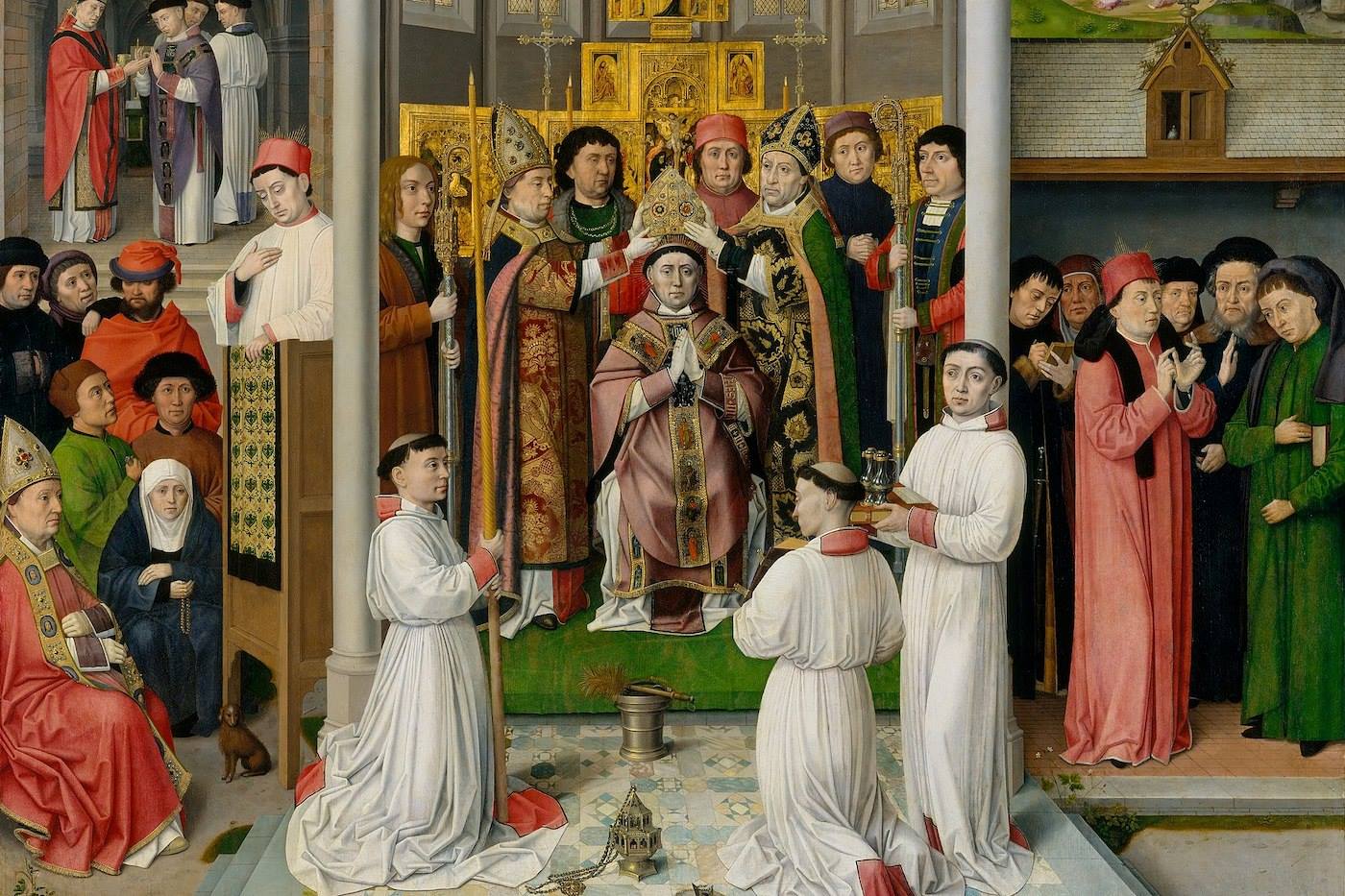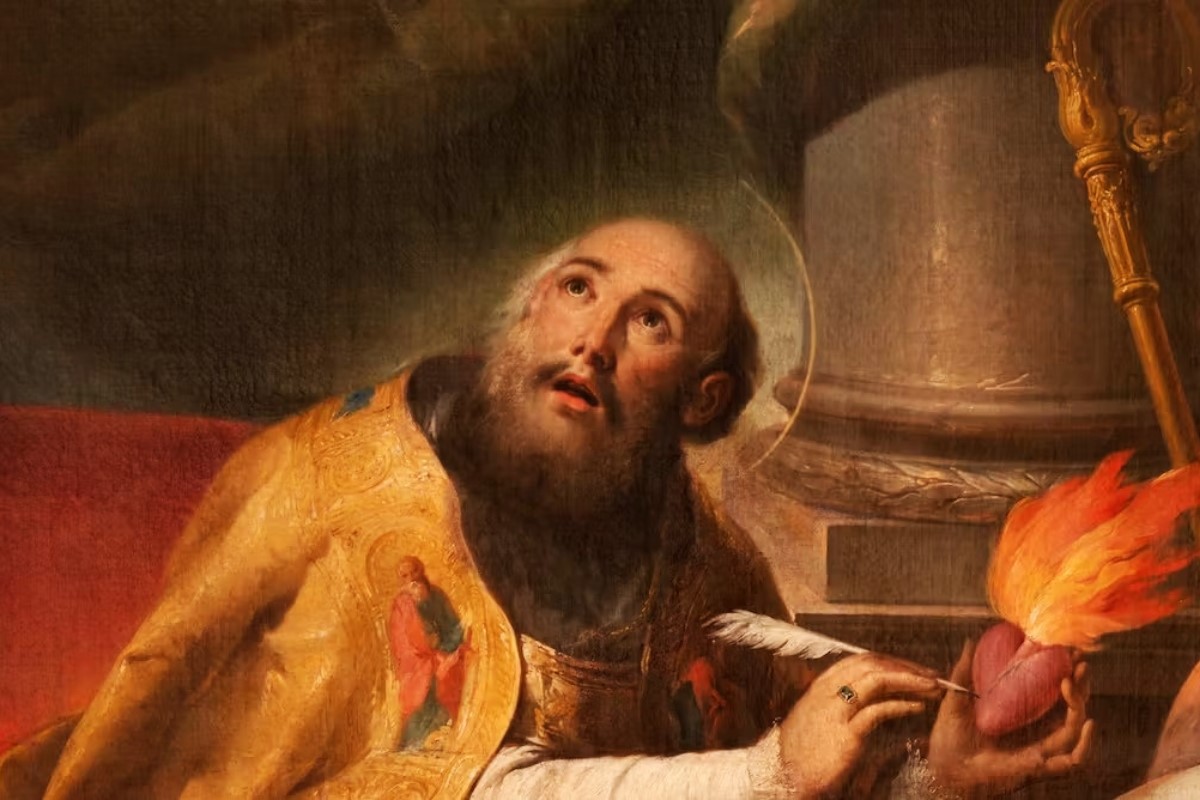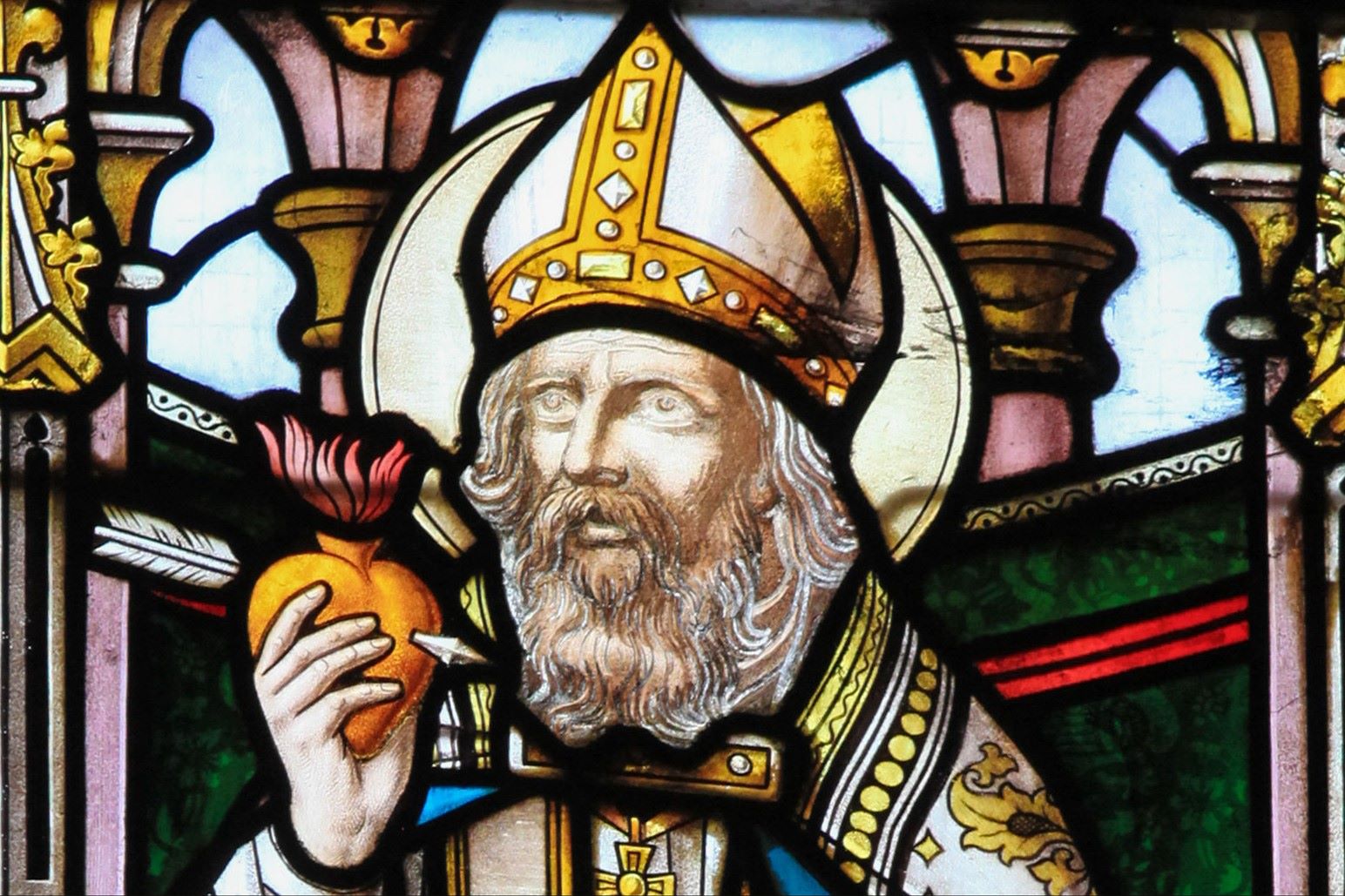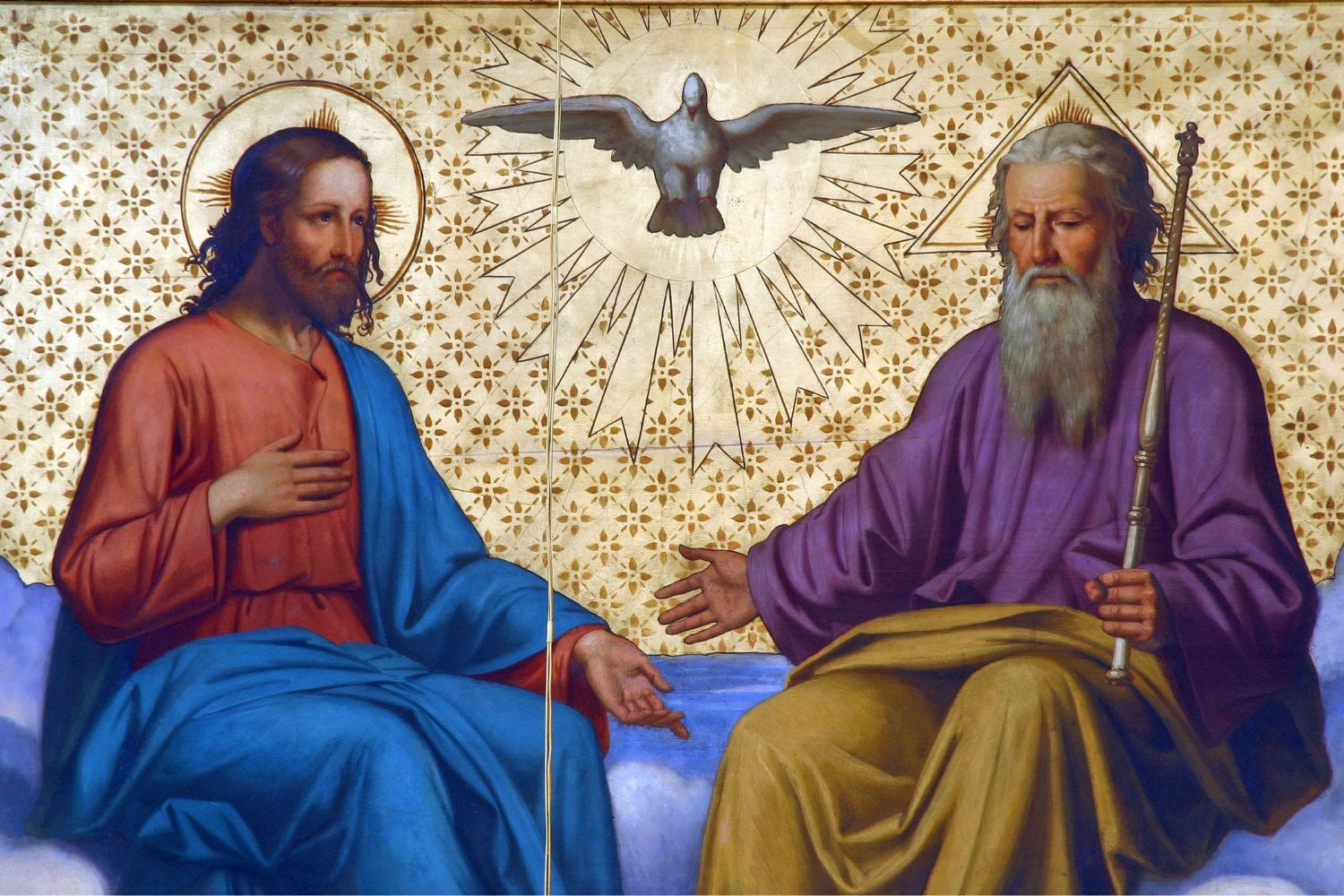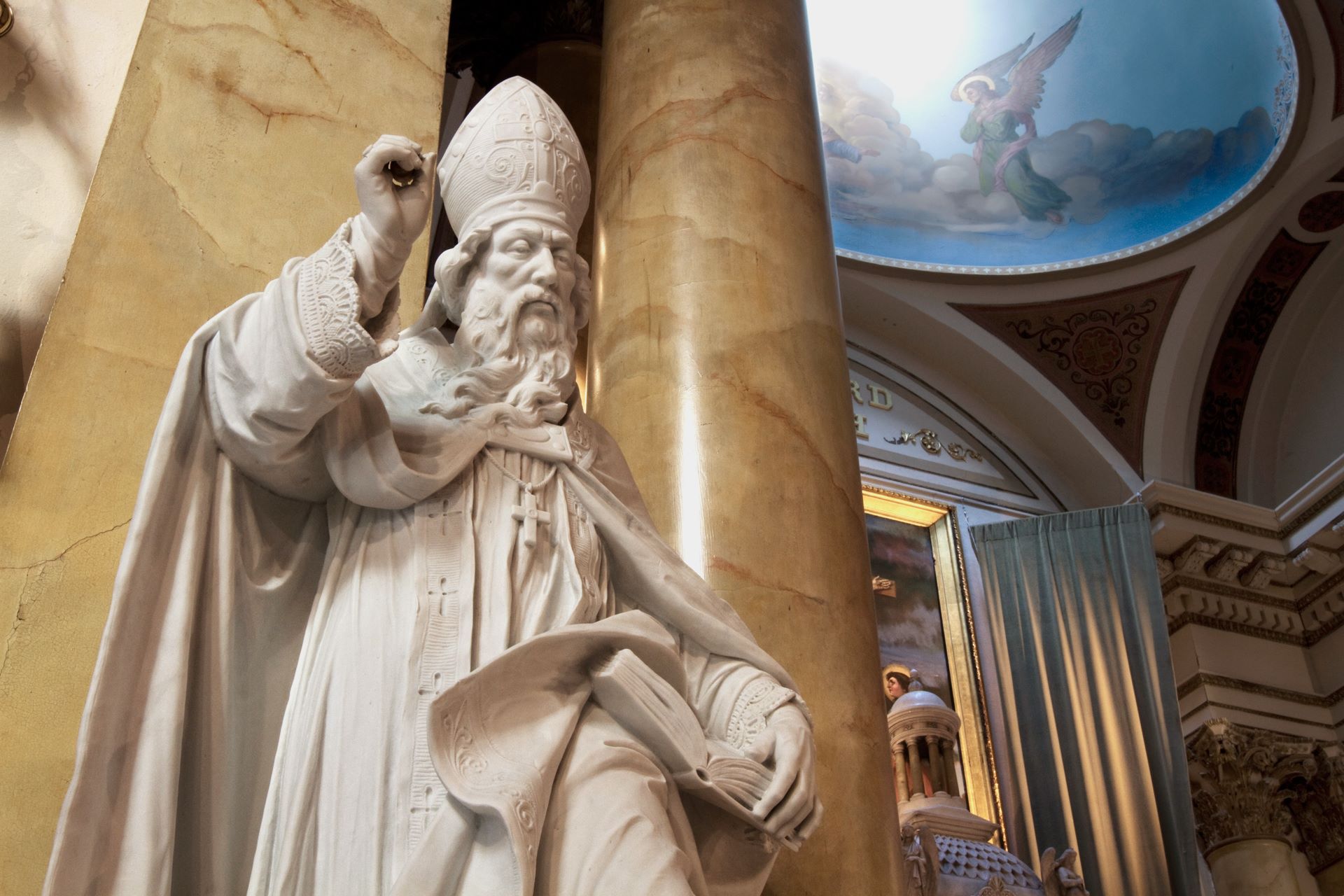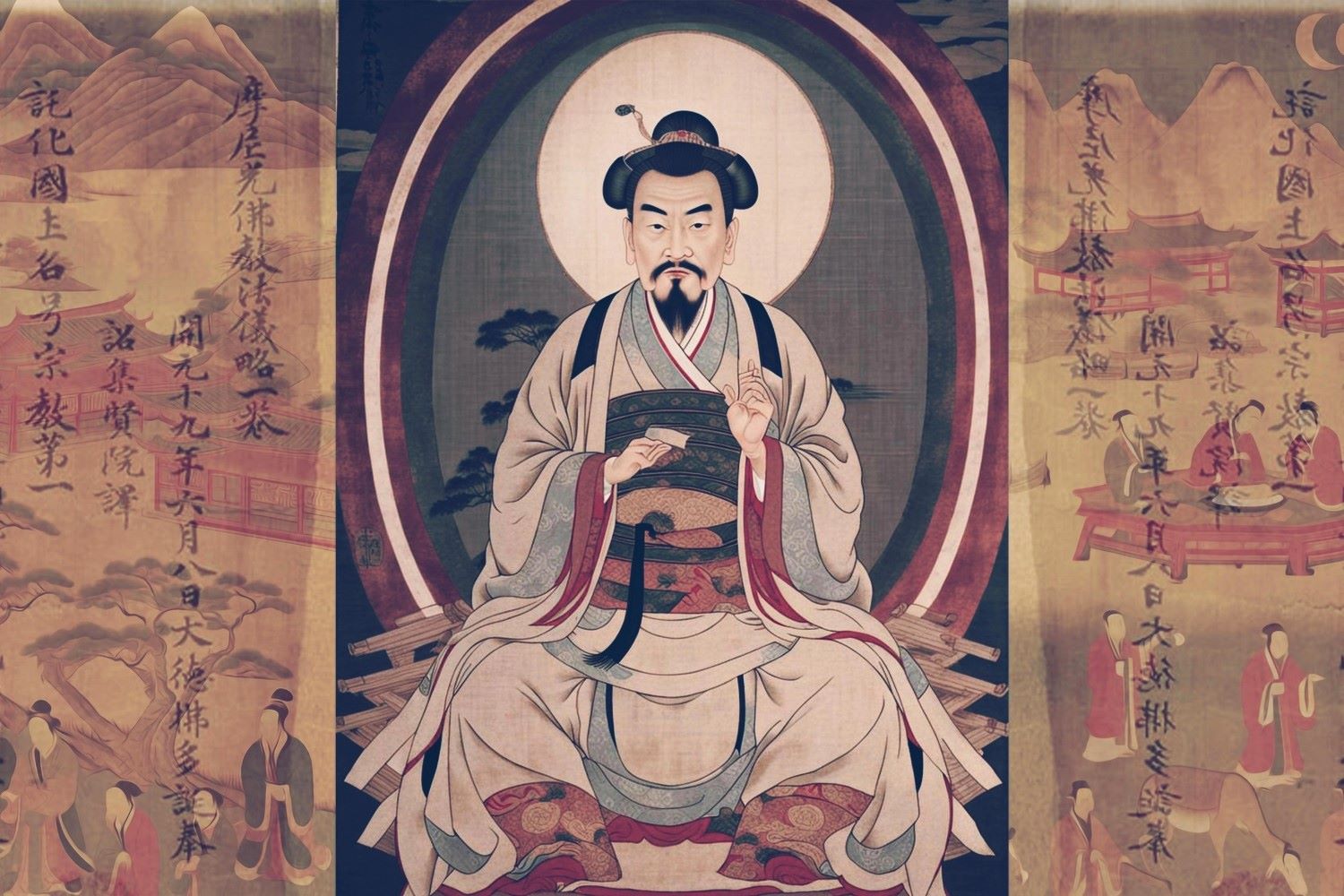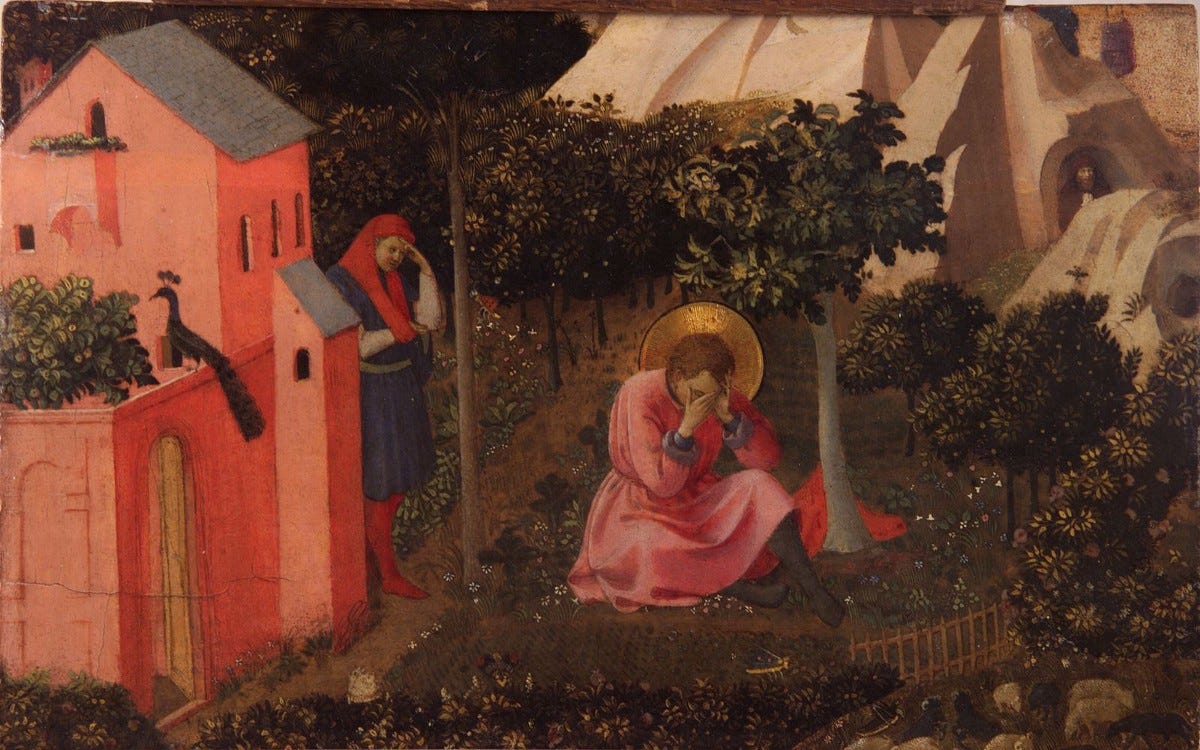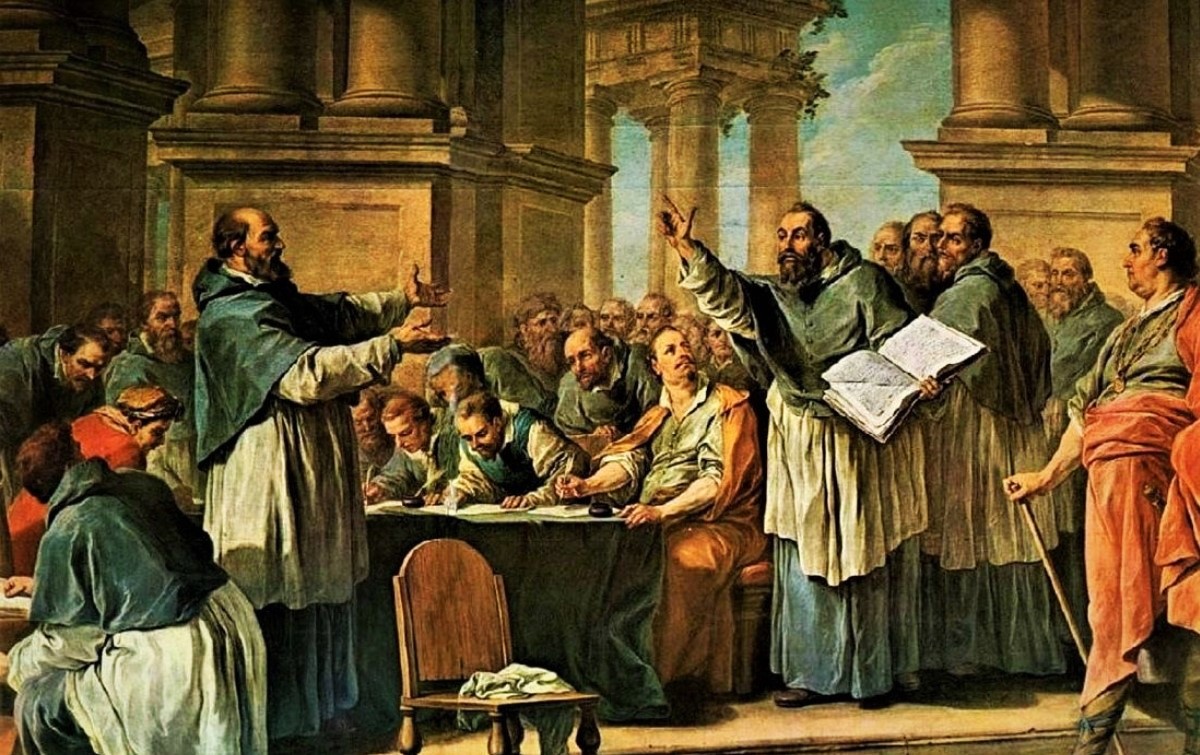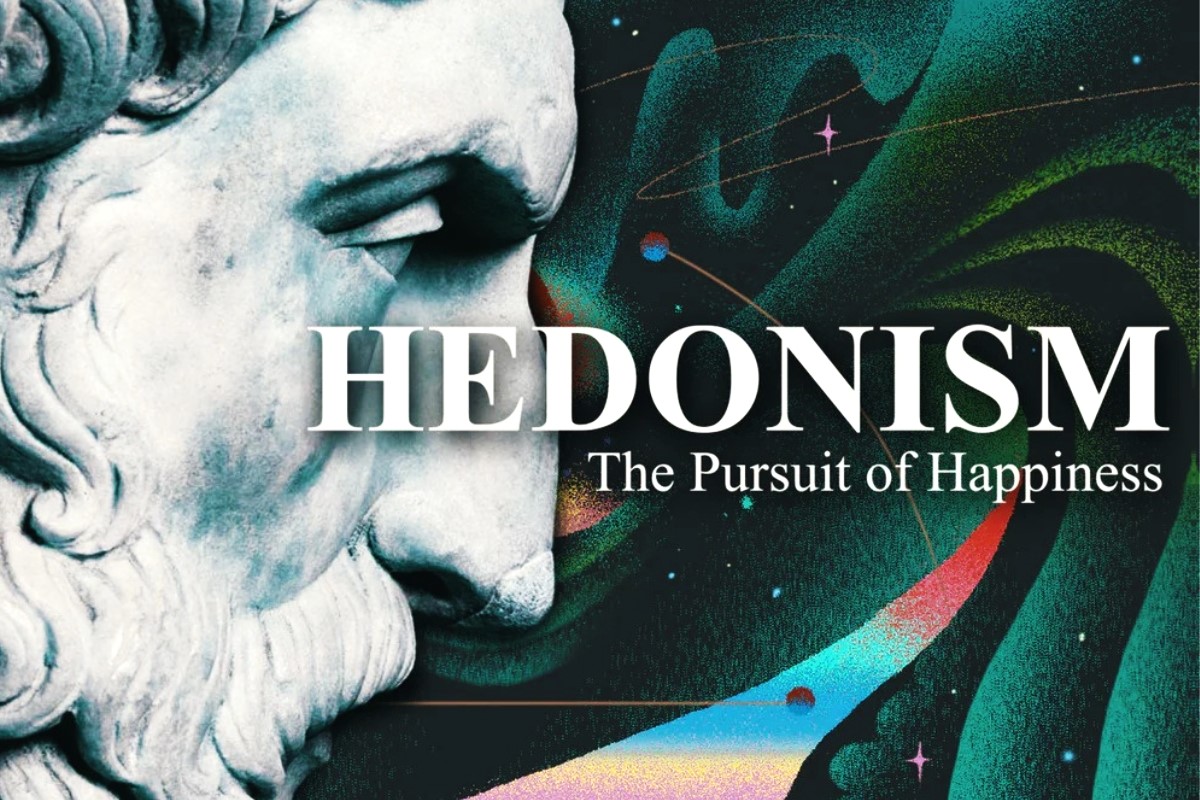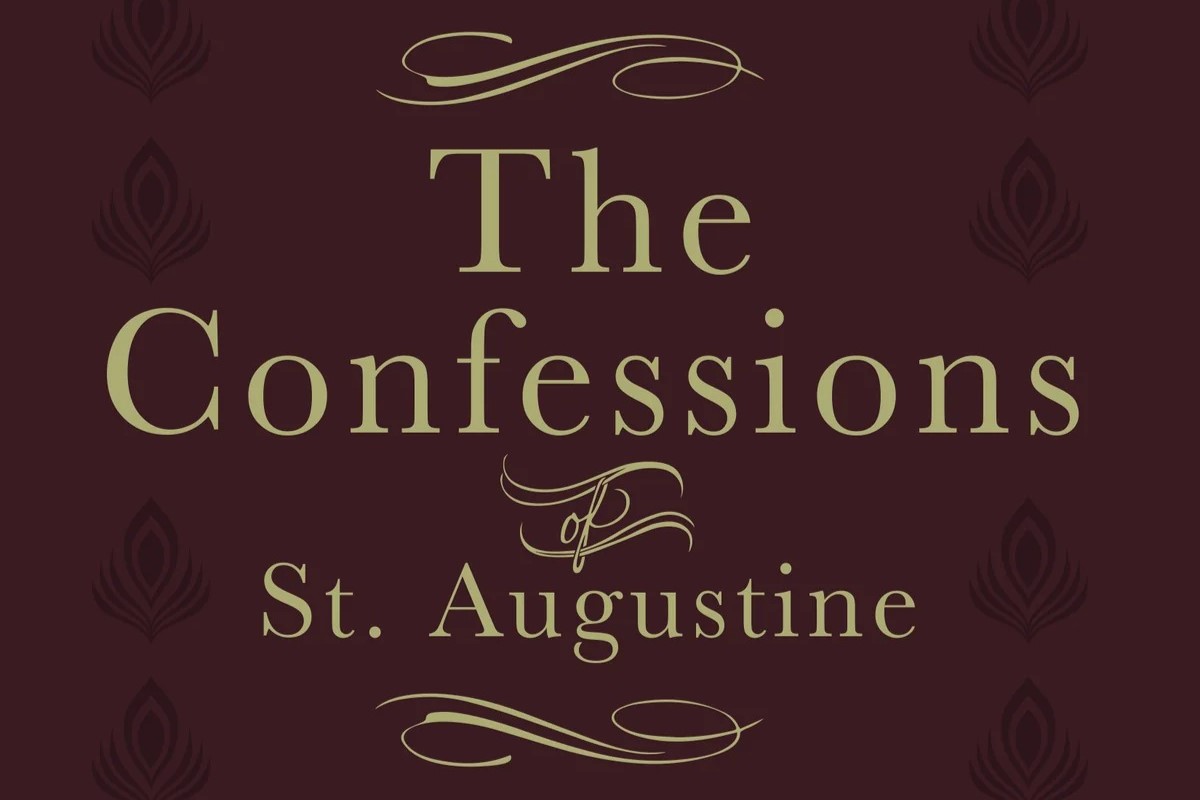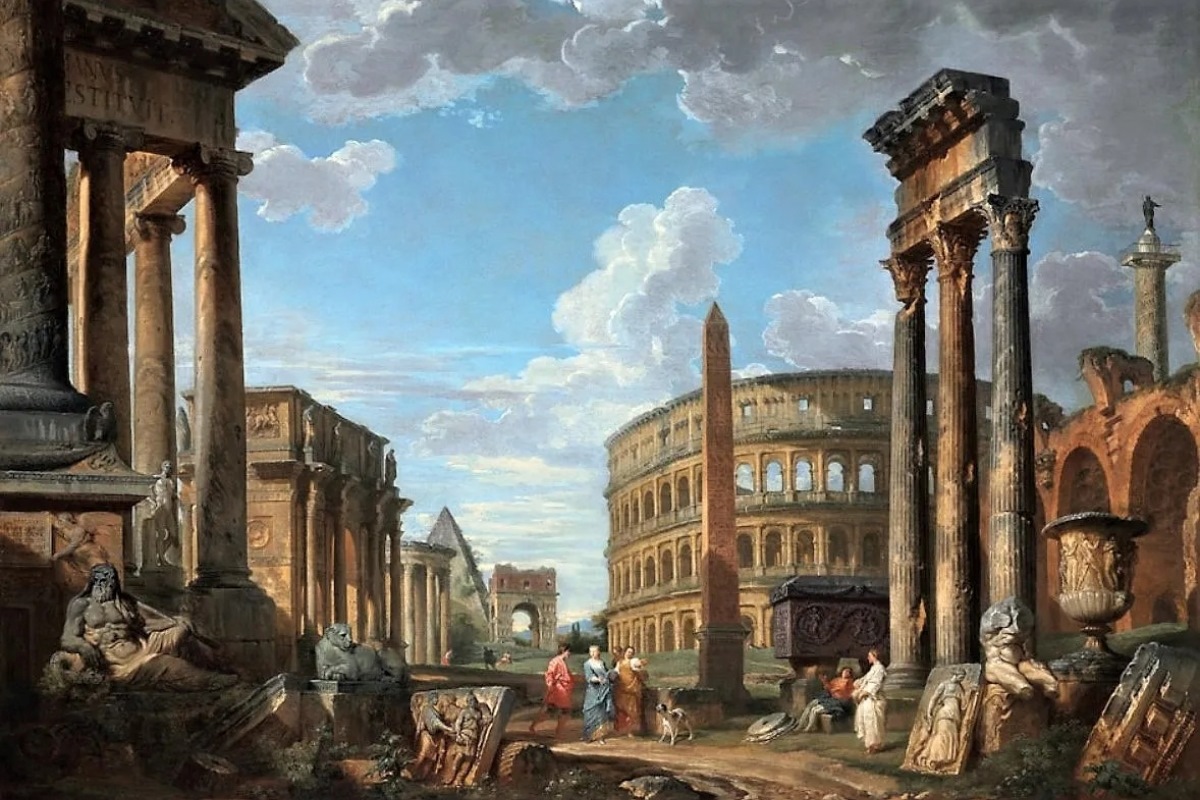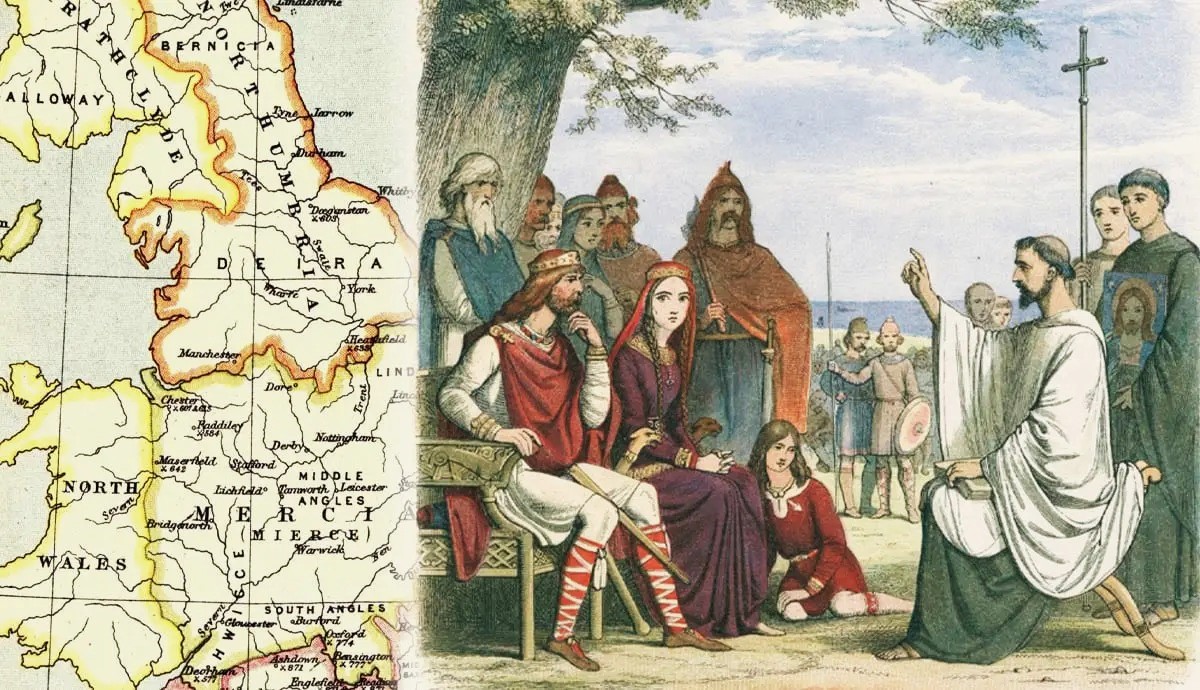Home>Theology and Spirituality>What Did Augustine Believe In
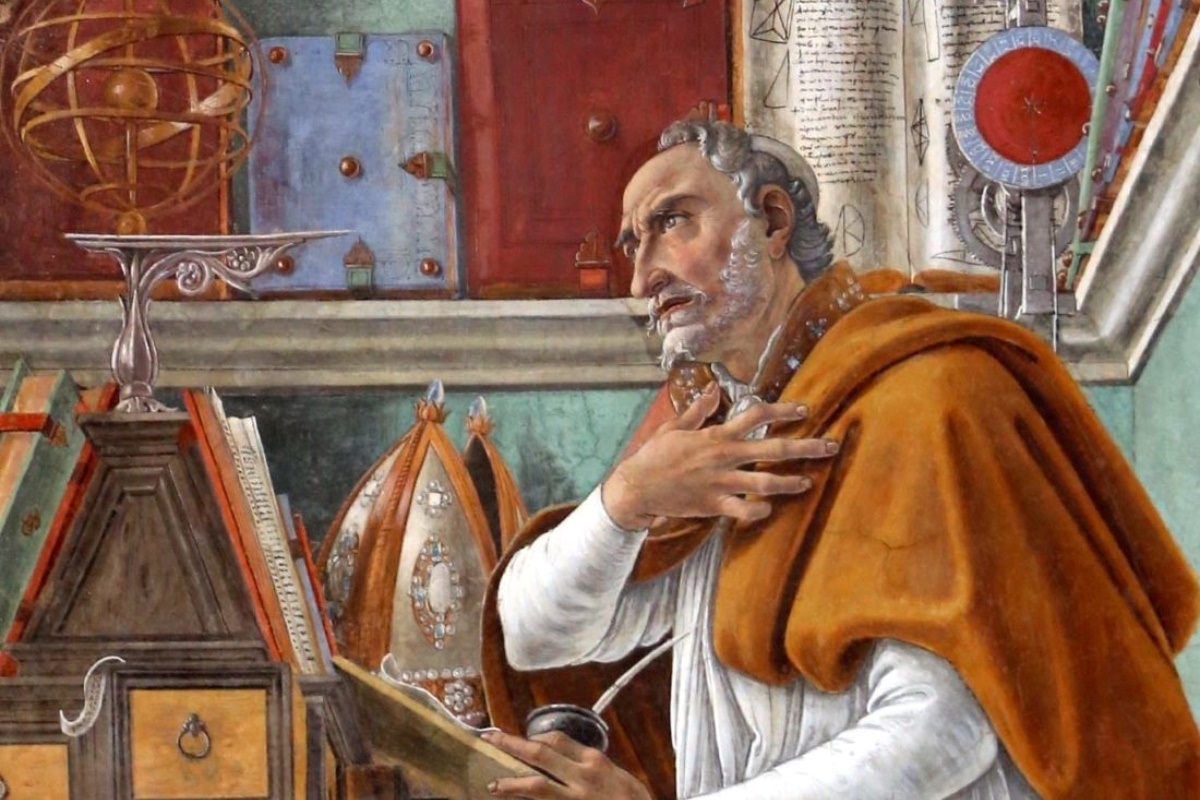

Theology and Spirituality
What Did Augustine Believe In
Published: February 10, 2024
Jason DeRose, Managing Editor at Christian.net, uses his expertise in religion and journalism to deepen understanding of faith's societal impacts. His editorial leadership, coupled with a strong academic background, enriches the platform’s diverse content, earning him recognition in both journalism and religious circles.
Discover Augustine's beliefs in theology and spirituality. Explore his influential ideas and impact on Christian thought. Gain insights into the teachings of this influential theologian.
(Many of the links in this article redirect to a specific reviewed product. Your purchase of these products through affiliate links helps to generate commission for Christian.net, at no extra cost. Learn more)
Table of Contents
Introduction
Augustine of Hippo, also known as Saint Augustine, was a pivotal figure in the development of Christian theology. Born in 354 AD in the Roman province of Numidia, which is present-day Algeria, Augustine's influence on Western Christianity is immeasurable. His theological insights and philosophical contributions continue to shape the beliefs and practices of Christians around the world.
As a young man, Augustine led a life marked by intellectual curiosity and spiritual yearning. His journey from a skeptical seeker to a devout Christian thinker is a testament to the transformative power of faith and reason. Augustine's writings, particularly his autobiographical work "Confessions," offer a profound glimpse into his inner struggles and eventual embrace of Christianity.
Throughout his life, Augustine grappled with profound questions about the nature of God, the problem of evil, and the human condition. His exploration of these themes laid the groundwork for many theological concepts that remain central to Christian thought today.
In this article, we will delve into Augustine's beliefs and contributions to Christian theology, examining key aspects of his thought such as the theology of original sin, the nature of God, the problem of evil, the role of grace, and his magnum opus, "The City of God." By exploring these facets of Augustine's theology, we can gain a deeper understanding of his enduring legacy and the profound impact of his teachings on the Christian faith.
Read more: What Books Did Augustine Write
Early Life and Conversion
Augustine's early life was marked by a quest for knowledge and a relentless pursuit of truth. Born to a pagan father, Patricius, and a devout Christian mother, Monica, Augustine was exposed to diverse religious influences from an early age. His mother's unwavering faith and fervent prayers would later play a pivotal role in his spiritual journey.
As a young man, Augustine displayed a remarkable intellect and a thirst for learning. He pursued education in rhetoric and philosophy, eventually becoming a renowned teacher of rhetoric in Carthage. Despite his intellectual prowess, Augustine found himself grappling with profound existential questions and a deep sense of spiritual unrest.
It was during this period of inner turmoil that Augustine encountered the influential Manichaean sect, which offered a distinct cosmological and theological framework. Intrigued by their teachings, Augustine became a devoted follower of the Manichaeans for a time, drawn to their dualistic worldview that posited a cosmic struggle between light and darkness.
However, Augustine's intellectual journey led him to critically examine the tenets of Manichaeism, ultimately finding them lacking in coherence and unable to provide satisfactory answers to the profound questions that weighed on his soul. His disillusionment with Manichaeism marked a crucial turning point in his spiritual odyssey.
The pivotal moment of Augustine's conversion came during a period of intense reflection in Milan, where he encountered the renowned bishop, Ambrose. Through their conversations and Ambrose's eloquent preaching, Augustine was gradually drawn to the profound beauty and intellectual depth of Christian faith. The stirring influence of Ambrose, coupled with the prayers of his mother, Monica, and the powerful impact of the Scriptures, ultimately led Augustine to embrace Christianity.
Augustine's conversion was not merely a change of religious affiliation; it represented a profound transformation of his entire being. His restless intellect found solace in the profound truths of Christianity, and his fervent pursuit of wisdom was redirected toward the pursuit of God. This pivotal moment marked the beginning of Augustine's remarkable journey as a Christian thinker and theologian, setting the stage for his enduring impact on the development of Christian thought.
In the wake of his conversion, Augustine's life became a testament to the transformative power of faith and the unyielding pursuit of truth. His spiritual odyssey, marked by intellectual rigor and profound introspection, serves as an enduring testament to the profound impact of divine grace and the relentless pursuit of spiritual truth.
Theology of Original Sin
The theology of original sin stands as a foundational pillar of Augustine's theological framework, profoundly shaping his understanding of human nature, sin, and redemption. Central to this doctrine is the concept of inherited sinfulness, stemming from the primal transgression of Adam and Eve in the Garden of Eden. Augustine's formulation of original sin represents a departure from earlier Christian traditions, offering a distinctive perspective on the pervasive nature of human depravity.
At the heart of Augustine's theology of original sin lies the notion of inherited guilt and moral corruption passed down through generations. He posited that as a result of Adam's disobedience, all of humanity is born into a state of sin, inheriting not only the consequences of Adam's transgression but also a corrupted nature inclined towards sin. This radical view of human depravity profoundly influenced Augustine's understanding of salvation and the redemptive work of Christ.
Augustine's doctrine of original sin reflects his profound insight into the human condition, acknowledging the pervasive influence of sin in every aspect of human existence. This theological framework underscores the inherent moral frailty and spiritual destitution of humanity, emphasizing the desperate need for divine grace and redemption. Augustine's emphasis on the universal scope of original sin serves as a poignant reminder of the profound brokenness that permeates the human experience, compelling individuals to recognize their inherent need for divine intervention.
Furthermore, Augustine's theology of original sin underscores the transformative power of grace in overcoming the pervasive effects of inherited sinfulness. By highlighting the radical nature of human depravity, Augustine magnifies the unmerited nature of God's redemptive grace, emphasizing the indispensable role of divine intervention in liberating humanity from the bondage of sin.
In essence, Augustine's theology of original sin offers a profound reflection on the universal human predicament, illuminating the pervasive influence of sin and the transformative power of divine grace. This theological framework continues to resonate within Christian theology, serving as a poignant reminder of the profound impact of Adam's transgression and the inexhaustible depths of God's redemptive love.
The Nature of God
At the core of Augustine's theological reflections lies a profound exploration of the nature of God. Central to his understanding is the concept of God as the ultimate and transcendent source of all existence, encompassing attributes of omnipotence, omniscience, and omnipresence. Augustine's conception of God as the unchanging and eternal foundation of reality reflects his deep engagement with Neoplatonic philosophy and Christian scripture.
Augustine's exploration of the nature of God extends beyond philosophical speculation; it is deeply intertwined with his personal encounters with the divine and his contemplation of the human condition. He portrays God as the ineffable and incomprehensible source of all goodness and truth, whose nature transcends human understanding. This portrayal underscores Augustine's profound reverence for the divine and his recognition of the limitations of human intellect in grasping the fullness of God's being.
Furthermore, Augustine's understanding of the nature of God encompasses the doctrine of the Trinity, affirming the triune nature of God as Father, Son, and Holy Spirit. His reflections on the Trinity illuminate the dynamic interplay of divine persons within the Godhead, emphasizing the unity and diversity inherent in the nature of God. Augustine's articulation of the Trinity reflects his commitment to safeguarding the unity of the Godhead while acknowledging the distinct roles of each person within the divine triad.
Moreover, Augustine's conception of God as the ultimate source of love and benevolence permeates his theological framework. He portrays God as the unbounded source of love, whose redemptive grace extends to all humanity. Augustine's emphasis on the benevolence and compassion of God underscores his profound conviction in the transformative power of divine love, which serves as the cornerstone of his theological vision.
In essence, Augustine's exploration of the nature of God offers a profound meditation on the ineffable and transcendent reality of the divine. His theological reflections invite individuals to contemplate the unfathomable depths of God's being and to embrace a posture of awe and reverence in the presence of the divine mystery. Augustine's portrayal of God as the ultimate source of love and truth continues to inspire and challenge individuals to seek a deeper understanding of the divine nature and to cultivate a profound sense of devotion and adoration toward the ineffable God.
The Problem of Evil
The problem of evil has been a perennial concern within the realm of theological and philosophical discourse, prompting profound reflections on the nature of suffering, moral agency, and the divine attributes. Augustine grappled with this profound enigma, seeking to reconcile the existence of evil and human suffering with the benevolence and omnipotence of God. His nuanced exploration of the problem of evil continues to resonate within theological discussions, offering profound insights into the complexities of human experience and the enigmatic nature of divine providence.
Central to Augustine's engagement with the problem of evil is his recognition of the inherent tension between the existence of evil and the goodness of God. He acknowledges the pervasive reality of human suffering and moral depravity, recognizing the profound impact of evil on the human condition. Augustine's reflections on the problem of evil are deeply rooted in his personal experiences and observations of the world, compelling him to confront the existential realities of pain, injustice, and moral frailty.
Moreover, Augustine's theological framework grapples with the profound implications of human free will in the context of the problem of evil. He contends that the moral agency bestowed upon humanity by God entails the capacity to choose between good and evil, thereby introducing the potential for moral transgression and the proliferation of evil in the world. Augustine's emphasis on the moral responsibility of human beings underscores the intricate interplay between free will and the existence of evil, inviting individuals to contemplate the complexities of moral decision-making and its profound ramifications.
Furthermore, Augustine's engagement with the problem of evil is intricately linked to his profound reflections on the redemptive work of Christ and the transformative power of divine grace. He contends that God's providential plan encompasses the ultimate triumph over evil through the redemptive sacrifice of Christ, offering a profound vision of hope and restoration amidst the pervasive reality of human suffering. Augustine's theological framework underscores the transformative potential of divine grace in overcoming the effects of evil, illuminating the profound depths of God's redemptive love in the face of human brokenness.
In essence, Augustine's exploration of the problem of evil offers a profound meditation on the complexities of human experience and the enigmatic nature of divine providence. His theological reflections invite individuals to grapple with the profound realities of suffering and moral frailty while embracing a vision of hope rooted in the transformative power of divine grace. Augustine's engagement with the problem of evil serves as a poignant reminder of the enduring quest to reconcile the complexities of human existence with the ineffable mysteries of divine providence.
The Role of Grace
At the heart of Augustine's theological framework lies a profound emphasis on the transformative and redemptive power of divine grace. Central to his understanding of grace is the recognition of humanity's inherent moral frailty and its desperate need for divine intervention. Augustine's reflections on the role of grace are deeply intertwined with his theological vision of the human condition and the profound implications of sin and redemption.
Augustine contends that grace represents the unmerited and unbounded love of God, extending to humanity as a transformative force that transcends the pervasive effects of sin and moral depravity. His theological framework underscores the radical nature of grace, emphasizing its indispensable role in liberating individuals from the bondage of sin and restoring them to a harmonious relationship with God. Augustine's profound insight into the transformative potential of grace reflects his unwavering conviction in the inexhaustible depths of God's redemptive love, which transcends human frailty and moral transgression.
Furthermore, Augustine's articulation of grace encompasses the concept of prevenient grace, which precedes and enables the individual's response to God's redemptive initiative. He emphasizes that grace operates as a divine catalyst, awakening the human soul to its desperate need for God and empowering the individual to respond in faith and obedience. Augustine's theological vision of grace underscores the dynamic interplay between divine sovereignty and human responsiveness, illuminating the profound mystery of God's redemptive work in the human heart.
Moreover, Augustine's reflections on the role of grace extend to the transformative impact of grace in the process of sanctification. He contends that grace operates as a continual and transformative force, shaping the moral character of the believer and empowering them to embody the virtues of love, compassion, and righteousness. Augustine's theological framework underscores the ongoing work of grace in nurturing spiritual growth and moral renewal, illuminating the profound depths of God's transformative love in the life of the believer.
In essence, Augustine's exploration of the role of grace offers a profound meditation on the transformative and redemptive power of divine love. His theological reflections invite individuals to embrace the unmerited nature of grace and to recognize its transformative impact in overcoming the pervasive effects of sin and moral frailty. Augustine's vision of grace serves as a poignant reminder of the inexhaustible depths of God's redemptive love, inviting individuals to embrace a posture of humility and gratitude in response to the transformative work of divine grace.
The City of God
Augustine's magnum opus, "The City of God," stands as a monumental work that encapsulates his profound theological vision and philosophical insights. Written in the wake of the sack of Rome in 410 AD, the work represents Augustine's profound reflection on the nature of human society, the unfolding of history, and the ultimate destiny of humanity. "The City of God" serves as a profound meditation on the contrasting realities of the earthly city and the heavenly city, offering a compelling vision of the divine order that transcends the temporal vicissitudes of human existence.
Central to Augustine's exposition in "The City of God" is the stark juxtaposition between the earthly city, characterized by temporal pursuits, moral frailty, and the pursuit of worldly glory, and the heavenly city, marked by the pursuit of divine truth, moral rectitude, and the ultimate quest for communion with God. Augustine's profound engagement with the contrasting realities of these two cities serves as a poignant reminder of the enduring tension between the transient nature of human endeavors and the enduring reality of the divine order.
Moreover, "The City of God" represents Augustine's profound reflection on the unfolding of history and the providential plan of God. He contends that the vicissitudes of human history, marked by triumphs and tribulations, are ultimately encompassed within the divine economy, culminating in the ultimate realization of God's redemptive purposes. Augustine's theological vision in "The City of God" invites individuals to contemplate the profound interplay between human agency and divine providence, illuminating the enigmatic tapestry of history within the overarching framework of God's redemptive plan.
Furthermore, Augustine's exposition in "The City of God" underscores the transformative power of divine grace in shaping the destiny of humanity. He emphasizes that the unfolding drama of human history finds its ultimate resolution in the redemptive work of Christ, offering a profound vision of hope and restoration amidst the complexities of human existence. Augustine's theological vision in "The City of God" serves as a poignant reminder of the enduring quest for transcendence and the ultimate fulfillment of human longing within the divine order.
In essence, "The City of God" stands as a profound testament to Augustine's enduring legacy as a theologian and philosopher. His magnum opus offers a compelling vision of the contrasting realities of the earthly city and the heavenly city, inviting individuals to contemplate the profound interplay between human history, divine providence, and the ultimate destiny of humanity within the overarching framework of God's redemptive plan.
Legacy and Influence
Augustine of Hippo's enduring legacy and profound influence on Christian theology and Western thought are indelible. His theological insights, philosophical acumen, and unwavering commitment to the pursuit of truth continue to resonate within the tapestry of Christian intellectual tradition, shaping the beliefs and practices of countless individuals across diverse cultural and theological landscapes.
One of Augustine's most enduring legacies lies in his profound articulation of the theology of original sin, which has left an indelible imprint on Christian anthropology and soteriology. His penetrating analysis of the pervasive nature of human depravity and the transformative power of divine grace continues to inform theological discourse, inviting individuals to grapple with the complexities of human existence and the inexhaustible depths of God's redemptive love.
Furthermore, Augustine's profound reflections on the nature of God have left an indelible mark on Christian theology, inviting individuals to contemplate the ineffable and transcendent reality of the divine. His articulation of God as the ultimate source of love and truth continues to inspire and challenge individuals to seek a deeper understanding of the divine nature and to cultivate a profound sense of devotion and adoration toward the ineffable God.
Moreover, Augustine's engagement with the problem of evil has profoundly influenced theological and philosophical discussions, offering profound insights into the complexities of human experience and the enigmatic nature of divine providence. His nuanced exploration of the tension between the existence of evil and the goodness of God continues to provoke profound reflection on the enduring quest to reconcile the complexities of human existence with the ineffable mysteries of divine providence.
Additionally, Augustine's magnum opus, "The City of God," stands as a monumental work that encapsulates his profound theological vision and philosophical insights. His compelling vision of the contrasting realities of the earthly city and the heavenly city continues to invite individuals to contemplate the profound interplay between human history, divine providence, and the ultimate destiny of humanity within the overarching framework of God's redemptive plan.
In essence, Augustine's enduring legacy and profound influence endure as a testament to the enduring power of faith, reason, and the relentless pursuit of truth. His theological insights continue to inspire and challenge individuals to grapple with the profound mysteries of human existence and the ineffable depths of divine love, inviting them to embrace a posture of humility and awe in the presence of the transcendent God.
